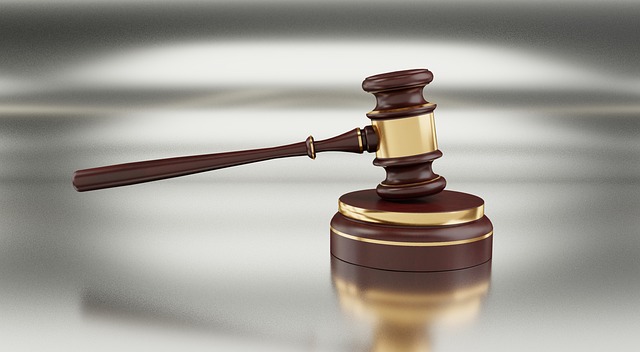In cases where one or both parties do not have legal representation, the court can adjourn. The court postponed the hearing to give them time to find attorneys, collect evidence, dispute information obtained from police, hire interpreters, ask for the dismissal of charges, or negotiate a private settlement.
Also, the court will grant adjournment if someone needs extra time to prepare for the hearing.
Adjournment of the lawsuit requires strong reasons on both sides of the issue. The magistrate considers each of these defenses separately.
You or your lawyers may need to ask for a postponement of the hearing for various reasons.
- To gather more information under the watchful eyes of the court.
- If legal counsel is not present.
- Not having enough witnesses or evidence.
The three reasons listed above are the most common reasons a court case would be adjourned.
Reasons for court adjournment

There are several valid reasons to call a meeting adjournment. It incorporates more time to resolve unanticipated concerns from technological obstacles.
Here are the details reasons for adjournment-
- In the absence of Participants
Plaintiffs, defendants, witnesses, solicitors, and judges are all involved in a court case.
The court date can be delayed if any of these witnesses are absent on the scheduled date.
If a key witness is unwell and cannot provide testimony, the side will lack evidence to present. In such a case, the court can grant an adjournment to ensure that all relevant parties are present for a fair trial.
- Not getting enough time to prepare
Due to late evidence submission or procedural complexity, the parties seek an adjournment. If they feel they need more time to prepare for the proceedings.
Lack of time for the parties to prepare their strongest case may affect the fairness of the trial. If the court determines that more time is needed to prepare arguments, it may order a delay.
3. Settlement Negotiations
Before taking a case to trial, the parties to a legal dispute may often seek to settle.
If the parties progress toward a settlement, the court may decide to delay. These further proceedings give them more time to reach an agreement.
The legal system saves time and money by pushing parties to reach agreements.
Legal Arguments or Precedent Issues
Complex legal arguments are frequently in court cases, necessitating extensive investigation. Possible legal obstacles such as questions of law, legislative interpretation, and the use of precedent.
The court can delay the case for further investigation and analysis when dealing with such complex legal concerns.
Overcrowded Court Dockets
Effective case management and docket control are essential to the efficient operation of any court. However, courts frequently have many cases pending at once, resulting in congested dockets.
If the docket is too full, matters may take longer to resolve than expected or not get attention. The court may delay some cases for efficient case management and to ensure justice is done without undue haste.
Administrative issues
Like any other institution, the judicial process can have breakdowns and administrative errors. If these factors cause delays or other problems during the trial, the judge may postpone the case until it is resolved.
Unexpected Events
Despite your best efforts to plan, sometimes life throws a wrench into your plans through an emergency.
Unexpected legal events include natural catastrophes, medical issues, crucial player accidents, and more.
These unexpected events can preclude witnesses from testifying in court or preparing a strong case. To protect the parties’ rights and provide a fair trial, the court must sometimes adjourn proceedings due to unexpected events.
Types of Adjournments
There are three distinct forms of adjournment:
- Motion-initiated adjournments for no more than three days.
- Adjournments for more than three days require Senate approval.
- An adjournment sine marks the end of each session of Congress. This requires approval from both chambers of Congress.

Rules for adjournment
Only under the following circumstances can an adjournment be granted:
According to Rule 1: The court may postpone the hearing and give the parties more time only if good reason is shown.
According to Rule 2: the court must schedule the next hearing and can also set the fee at the time of the adjournment.
After a trial starts, it will examine all witnesses daily unless the judge adjourns it for good reason.
No side should be entitled to an adjournment unless the circumstances warrant it. It can’t be denied just because the lawyer is asking for it or is busy with something else.
The court won’t delay a case if a pleader is sick. Unless the party seeking the adjournment could not have secured a pleader in time.
The judge can rule based on the witness’s evidence if the party or pleader is absent or unprepared to cross-examine.
FAQs
Parliamentary adjournment motions draw the House’s attention to an issue of pressing public importance. 50 votes in favor are needed for this to pass.
Legislative debate relies heavily on these devices, making it one of the most crucial.
In the first step, all litigants must ask the court to temporarily halt the case. Before the scheduled hearing time, the party seeking a delay has to file a complaint with the court.
You are eligible for one 14-day adjournment. If you need an adjournment but cannot attend court, you can give someone else written authorization to do so.
Final Verdict
Court adjournments provide fairness, efficiency, and justice in the legal system.
Courts must carefully evaluate postponement requests to uphold justice and avoid delays. Since court case postponements affect the legal system’s efficiency and fairness, it’s important to understand the causes.

